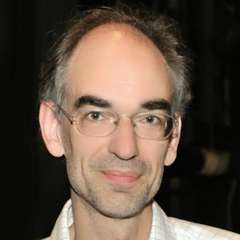After more than 25 years, you know that patience is your prime virtue when attending concerts of Valery Gergiev and the Mariinsky Orchestra. After all, when in luck, you will be richly rewarded. For the audience in Antwerp that reward came foremost with the introduction of Alexandre Kantorow, the young French pianist (22) who struck gold at the International Tchaikovsky Competition last June. As Co-Chair of the Organising Committee of the Competition, Gergiev often tours with the laureates. It was all the more fitting that they performed Tchaikovsky’s rarely heard Piano Concerto no. 2 in G major which Kantorow had played in the final round.
The Second Piano Concerto (1881) never achieved the popularity of its ubiquitous predecessor. Interestingly, it’s one of Tchaikovsky’s most upbeat works, brilliant but also fiendishly demanding and long, with an especially elaborate first movement, including no less than two cadenzas, and an extraordinary Andante non troppo, featuring extensive solos from violin and cello. Few pianists have championed the work (Emil Gilels in the old days being a notable exception), but now there is Kantorow making the strongest possible case for it.
For once the hype surrounding this young pianist doesn’t seem overdone. Allying effortless virtuosity with impeccable musicality, a piano touch and colour palette to die for with an utterly complete involvement in the music and a palpable sense of joy in recreating it: this was quite simply an astonishing performance, regardless of age. The particular structure of the concerto’s first movement, opposing orchestral ritornellos to piano solos, gave extra room to appreciate Kantorow’s imaginative approach. The massive final cadenza was absolutely compelling by his flawless articulation, with both hands perfectly balanced, and by his exemplary dynamic control and alert sense of structure. Think of a poet irresistibly teasing your senses by his creative use of rhythm, his unpredictable style of speech and his unfailing imagination.
Interactions with the orchestra, as in the ravishing dialogue with the flute in the first movement, or during the Andante non troppo boasting excellent contributions from orchestra leader Olga Volkova and principal cellist Anton Gakkel, fitted seamlessly in the overall picture. The bravura passages, as in the closing Allegro con fuoco were edge-of-seat stuff. Gergiev interspersed brilliantly conducted orchestral passages with theatrical pauses and made sure not to drown his soloist.
As an encore Kantorow tackled The Infernal Dance from Stravinsky’s Firebird transcribed by Guido Agosti. Another dizzying tour de force where he succeeded in visualising the fairytale-like imagery in all its vibrancy.
Had the concert ended there, few would have complained. Yet following the interval Gergiev guided us through a vividly coloured and sharply detailed evocation of Mussorgsky’s Pictures at an Exhibition in Ravel’s orchestration. With toothpick, fluttering hands and no score he brought every image alive with plenty of imagination, well-balanced and always keeping a sense of flow. The Gnomus turned darkly malicious, The Old Castle dripped with melancholy, children playfully cavorted in the Tuileries and the Unhatched Chicks hopped in jolly fashion. Bydło rolled in an impressive crescendo, while the Catacombs were a place you would never dare to enter. Baba Yaga thundered through the skies before a gloriously grand finale at the Kiev Gate nearly blew off the roof. While the Mariinsky Orchestra excelled in solos as well as ensemble, it was the brilliant trumpeters seated far right who covered themselves in glory. Gergiev gratified the standing ovation by generously completing Kantorow’s earlier encore with the Lullaby and Finale from Stravinsky’s Firebird.
In effect, this performance of Pictures stood in stark contrast to the ropey run-through of Rimsky-Korsakov’s Suite from The Tale of Tsar Saltan which had started the evening. Unfocused, loud, with messy ensembles, and, bizarrely for this orchestra, a complete lack of evocative power, nothing glued then. However, the Mariinsky wouldn’t be the Mariinsky if they weren’t able to transform and reinvent themselves during the evening and still send you home with the conviction you had witnessed something exceptional. And to be sure, with Alexandre Kantorow, it was definitely worth the wait. Catch him while you can!


